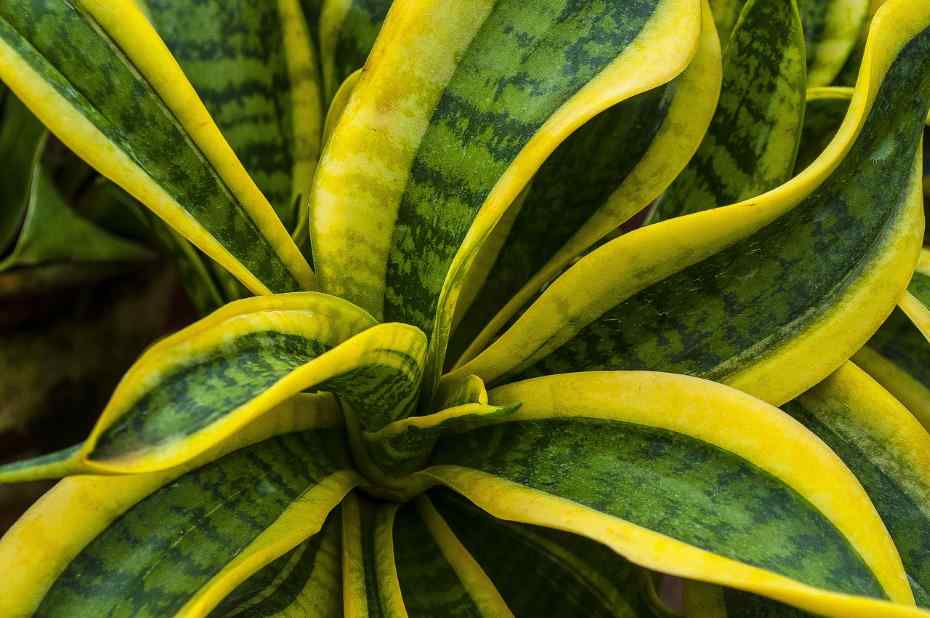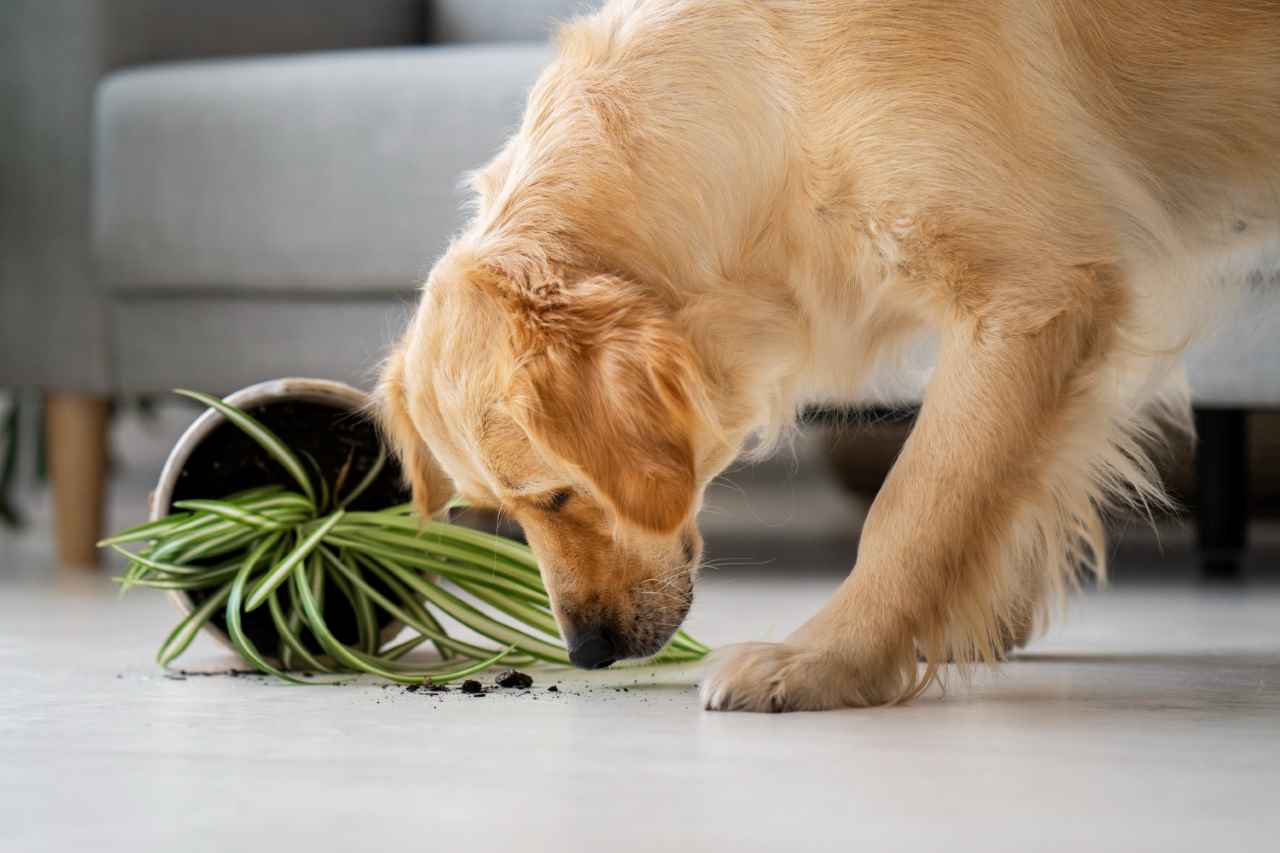I always thought of having a dog in my house, but I was a bit nervous about how they might go with my indoor plants, like other indoor plants I had a question Are snake plants toxic to dogs?
Studies have proved that Saponins in snake plants cause mild to moderate health issues in dogs depending on the quantity of ingestion. check out the details on the toxicity of houseplants to pet animals.
Welcome, fellow indoor plant and dog lovers! Today, we will understand the interesting world of snake plants and their interactions with pets such as dogs. Picture this as a friendly chat over a cup of tea, where we dive into the question on many pet owners’ minds: Are snake plants toxic to dogs? Let’s unravel the mystery together, combining plant wisdom and a dash of pet-friendly camaraderie.

The Presence of Snake Plants: A Botanical Marvel
In this Article
Firstly, let’s take a moment to appreciate the allure of snake plants, scientifically known as Sansevieria trifasciata. With their striking sword-shaped leaves and reputation as sturdy, low-maintenance houseplants, snake plants have become a favorite among indoor gardeners. They add a touch of green beauty to our homes, purifying the air and bringing nature’s calm indoors. They enhance the beauty of your corner and reward you with clean indoor air.
Friend or Enemy
Now, let’s shift our focus to our four-legged friends – our cherished dogs who fill our homes with joy, tail wags, and the pitter-patter of paws. As responsible pet owners, it’s natural to wonder about the potential hazards that certain houseplants might pose to our furry family members.
Addressing the Big Question: Are Snake Plants Toxic to Dogs?
So, here it is – the million-dollar question: Are snake plants toxic to dogs? The answer, thankfully, is not as alarming as it may sound. Snake plants are indeed listed as mildly toxic to dogs due to the presence of saponins, natural compounds that can cause gastrointestinal discomfort if ingested. However, the key here is “mildly.” So it may not result in severe conditions if consumed in less quantity rather than a large injection can make a difference
Understanding Saponins: The Culprits or Not-So-Culprits?
Saponins, found in various plant species, including snake plants, act as a natural pest defense mechanism. While these compounds can cause mild irritation in the digestive system, the concentration in snake plants is relatively low. This means that, in most cases, a dog would need to ingest a significant amount of the plant to experience adverse effects.
Real-World Scenarios: Practical Considerations
In the real world of wagging tails and curious noses, instances of dogs consuming large quantities of snake plant leaves are relatively rare. Being picky eaters, dogs frequently avoid the harsh flavor of snake plant leaves. Accidents do happen, especially with puppies or dogs who are very interested.
Symptoms of Ingestion: What to Look For
If, by any chance, your dog decides to nibble on a snake plant, what symptoms should you look out for? moderate poisoning symptoms include vomiting, diarrhea, and moderate tiredness. The good news is that most of these symptoms are self-limiting, and most dogs recover with minimum intervention, but if you notice any different behavior than normal activity of your dog then its good to get a checkup from your vet, it may help your doctor if you can carry a piece of leaf or a photo of a plant that your dog injected, because different variety has different outcome.
Veterinary Guidance: Always a Prudent Approach
While we reassure you about the mild nature of snake plant toxicity, it’s crucial to emphasize that individual dogs may react differently. If you feel your dog has consumed snake plant leaves or is exhibiting troubling symptoms, you should always seek personalized advice from your veterinarian. Veterinarians can advise you based on the breed, size, and overall health of your dog.
Creating a Safe Environment: Tips for Pet-Friendly Plant Parenting
Now that we’ve demystified the question, let’s transition into creating a safe and harmonious space where your plants and pets coexist happily. Here are some practical tips for pet-friendly plant parenting:
1. Elevated Plant Placement:
- Consider placing your snake plant in areas that are less accessible to your dog. tall stand for plants or hanging planters can be an excellent solution.
2. Training and Distractions:
- Positive reinforcement can be used to teach your dogs to avoid plants. Provide engaging toys and distractions to keep them away from the green temptations.
3. Introduce Pet-Safe Alternatives:
- If you’re concerned about your snake plant’s placement, consider introducing pet-safe alternatives to your indoor garden. Spider plants and Boston ferns are wonderful choices because they provide little danger to interested pets.
4. Monitor Behavioral Changes:
- Pay attention to your dog’s behavior around plants. If you notice excessive interest or chewing, it might be worth reassessing the plant’s location.
5. Regular Vet Check-ups:
- Schedule regular veterinary check-ups to ensure your dog’s overall health and catch any potential issues early on.
6. Pet-Friendly Plant Choices:
- Explore a variety of pet-friendly plants that can add beauty to your home without posing risks to your furry companions. You should reconsider the plant’s position if you detect excessive attention or chewing.
Conclusion
Finally, the appearance of a snake plant in your home does not have to be the reason for alarm. Having enough knowledge, awareness, and a bit of precaution, you can enjoy the beauty of indoor greenery while ensuring the safety and well-being of your pet companions. check out our list of easy-to-care indoor plants and safe companions with pets.
FAQs
Can a snake plant kill a dog?
No, snake plants are not usually deadly for dogs; however, ingestion may cause mild digestive issues, and it’s advisable to consult a vet if concerned.
What is the most toxic plant to Dogs?
One of the most toxic plants to dogs is the Sago Palm (Cycas revoluta), particularly its seeds, which contain a strong toxin that can be sufficient enough to cause death if ingested by dogs.
What happens if a dog eats a snake plant?
If a dog eats a snake plant, it may experience mild gastrointestinal symptoms such as vomiting or diarrhea due to the plant’s mildly toxic nature. However, severe toxicity is rare, and most dogs recover with minimal intervention. If concerned, consult a vet for guidance.
